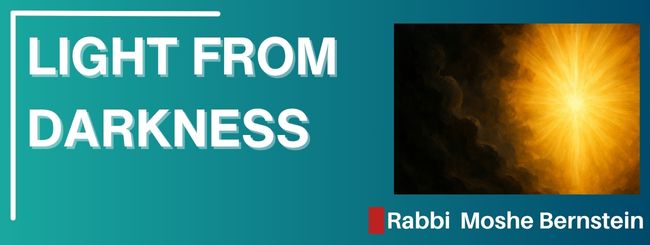בס”ד
Parshat Pinchas is read at the beginning of the period of Bein HaMetzarim (the “Days of Distress”). These days are days of mourning for the destruction of The Holy Temple that led to the long and terrible exile. However, ultimately, the suffering of exile is the bridge to the ultimate good in the true and complete Redemption.
The question then arises: Why did G-d do it this way, that the great revelation of good should grow specifically from a stage of descent and concealment in these three weeks? Couldn’t the Holy One, Blessed be He, have granted the good directly, without a preceding phase of obscurity?
The explanation is that the perfection of good and light is when they emerge from evil and darkness. It is specifically when darkness turns into light and evil transforms into good – this is the greatest perfection that can be achieved. Light that comes from within darkness and good that comes from within evil are the most exalted forms of light and good.
When evil itself transforms into good, then the full power of good is revealed, to the extent that even evil itself becomes subservient to it. This is the inner reason for all the descents that precede ascents, and for the entire matter of exile and destruction. Since the Holy One, Blessed be He, desires that the people of Israel and all the nations of the world will reach perfection.
When the world is passing through the stage of descent and darkness, it is all for the perfection of good and light that will be revealed in the true Redemption. When the world experiences turmoil, adherence to the Noahide Laws becomes a crucial act of positive transformation. Upholding the universal 7 commandments will turn potential “evil” (manifested in lawlessness, immorality, idol worship, violence, and injustice) into good. The salvation is for the entire world, where the Divine light, resulted by righteous way of life, will shine in its perfect form.
Source: Sefer Hasichot 1989, Volume 2, Page 581.
By Rabbi Moshe Bernstein
If you want more questions for contemplation, SEE THE OTHER BLOGS FROM RABBI MOSHE BERNSTEIN
© Copyright, all rights reserved. If you enjoyed this article, we encourage you to distribute it further.
Our blogs may contain text/quotes/references/links that include copyright material of Mechon-Mamre.org, Aish.com, Sefaria.org, Chabad.org, and/or AskNoah.org, which we use in accordance with their policies.
